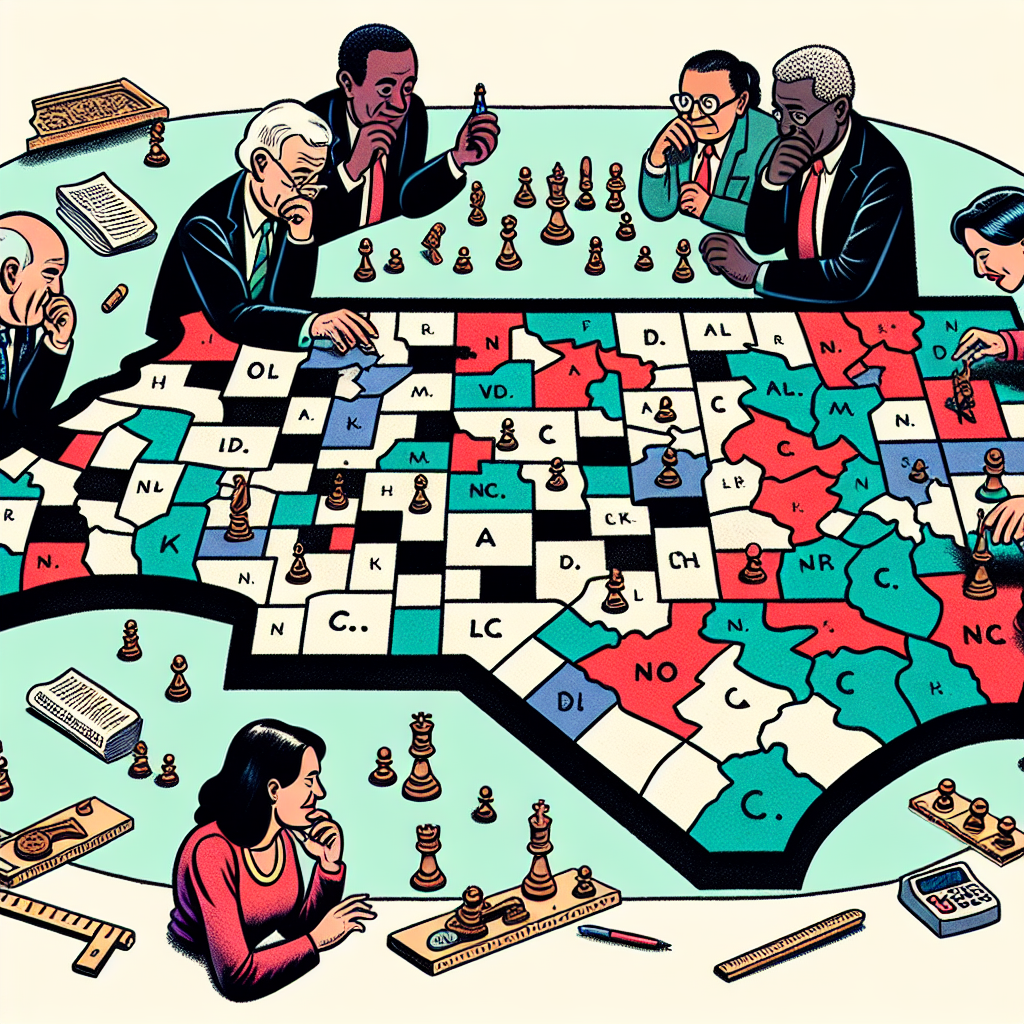Democrats’ Long Game in North Carolina Redistricting: A Pun Intended, But Also a Political Reality

Ah, redistricting — the political version of musical chairs, except the music’s political rhetoric, the seats are oddly shaped districts, and the players are scrambling with maps instead of dance moves. Now, North Carolina has stepped into the spotlight once again, as Democrats strategize their moves far beyond the immediate shuffle. This isn’t just about this election cycle — it’s about chess, not checkers. And while I’m usually more about dad jokes and goofy wordplay than high-stakes political analysis, this topic cracks a serious nut worth cracking (no squirrel chasers here!).
At its core, redistricting is the process by which electoral district lines are redrawn. Every ten years, following the census, states redraw these lines to ensure equal representation based on population changes. But what might sound like a neat equation and straightforward cartography quickly spirals into one of the most contentious tug-of-wars in American politics, often involving accusations of gerrymandering — crafting districts to favor one party over another.
In North Carolina’s case, the Democrats’ response to the newly proposed redistricting map is one that embraces the long haul rather than reacting with immediate outrage or resignation. Their approach is more “slow and steady wins the race” than “jump to conclusions.” Sure, the current maps might not look like a walk in the park for Democrats, but they’re not throwing in the towel. Instead, they’re jockeying for the future, keeping an eye on state courts, possible appeals, and ultimately the 2030 census when the deck gets reshuffled again.
This measured strategy might seem, on the surface, about as exciting as watching paint dry—or more accurately, watching a map get redrawn. But here’s where the punster in me perks up: politics is a lot like a “district” comedy show—timing is everything, and the best punchlines require setup. The Democrats’ patience is a setup for a punchline aiming years down the road. They’re building political infrastructure, messaging, grassroots support, and court cases all at once, rather than betting the farm on a quick win. It's the classic “play the long game,” something that reminds me why sometimes patience really is a virtue — especially in politics, where rebooting the game board doesn’t happen overnight.
The topic brings to light a larger, almost Sisyphean challenge in American democracy. District boundaries may change, court decisions may swing pendulums back and forth, but the underlying tension — the tussle over power, representation, and voter influence — remains stubbornly persistent. Democrats’ stance in North Carolina illustrates a willingness to accept that political progress doesn’t come from one-liners or quick zingers but from the slow accumulation of advantages and strategic positioning.
Of course, this isn’t to say the process couldn’t use a little less drama and a little more transparency. Honestly, load me up with maps, numbers, and political jargon, and I’ll probably doze off faster than you can say “gerrymandered.” But that’s why the long-term mindset, often overlooked because immediate results make for better headlines, is actually pretty smart. It’s a bit like knowing that the best jokes are the ones that sneak up on you, rather than hitting you over the head with a punchline. Democrats here seem to understand that political nudges, subtle but persistent, add up — one yard at a time. And in politics, like in football, you gotta move the chains before scoring the touchdown.
Now, a quick word of caution not to take this as a weather forecast. Politics can be as unpredictable as the punchline to a dad joke — sometimes groan-worthy, sometimes unexpectedly genius, and often a little bit of both. The Democrats’ long-term planning is promising, but it’s not a silver bullet, nor does it guarantee that future maps won’t be as twisty as a carnival funhouse mirror. Meanwhile, opponents will certainly try to redraw the narrative — and the districts — to fit their own comedic timing.
What this really highlights is how important it is for voters to keep engaged well beyond election nights and tweetstorms. Redistricting, the legal challenges, the shifting political turf — they’re part of a marathon, not a sprint. And that means staying informed, involved, and yes, sometimes just chuckling at the eccentricities of the political circus around us.
In the end, the Democrats’ approach in North Carolina is a testament to a truth both in politics and comedy: sometimes, you need to hold onto the setup before you deliver the punchline. The patience now might just be the punchline that lands perfectly a decade down the line, flipping the script on district maps and, hopefully, giving voters a fairer stage to play on.
So, while the news of redistricting may make some eyes glaze over faster than a glazed doughnut on display, it’s a crucial act in the democracy playbook. And if politicians can learn a thing or two from jokesters about timing, delivery, and the long game, maybe the next round of maps will be less about side-splitting arguments and more about side-by-side representation.
After all, laughter might be the best medicine, but a fair political map? Now *that*’s the punchline that could keep democracy healthy for years to come.

